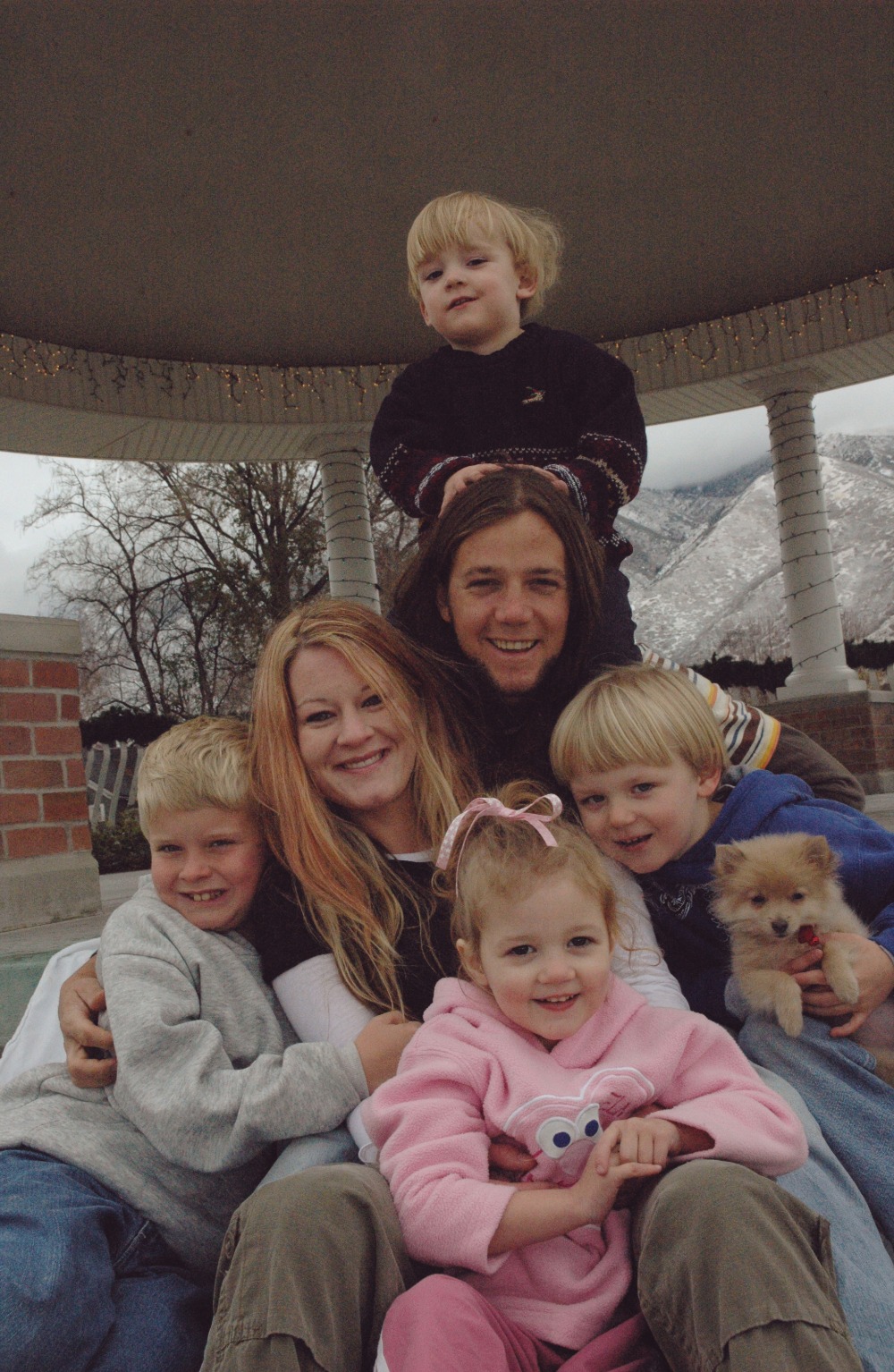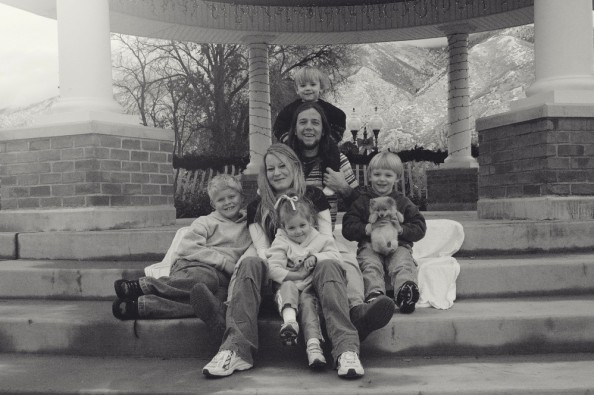The Marshall Family - Last Christmas 2012
Pete BennettDecember 03, 2015Murder, Murder Suicides, suicide, SW Florida, The Cartels, The Phillip Marshall Story
No comments

Surreal tragedy slightly impossible but undeniable connections to the September 11, 2001 World Trade Center bombings. Pete Bennett met Mr. Marshall several times in Walnut Creek where he would drop in - the conversation was valid as Marshall knew of events in Cape Coral Florid, Sanibel Island and Ft. Myers
LA Times: Two guns recovered from suspects were purchased legally, federal officials say
Two guns recovered from suspects were purchased legally, federal officials say
Meredith Davis, a spokeswoman for the Bureau of Alcohol, Tobacco,
Firearms and Explosives, said officials had "successfully traced" the
four guns recovered in connection with the San Bernardino shooting and
determined that two of the weapons were purchased legally.
The guns were bought by an individual associated with the investigation, Davis said but declined to name the person.
"Agents continue to investigate leads concerning the two additional firearms," Davis said.
Police officials said that two suspects, Syed Farook and Tashfeen Malik, were armed with two assault rifles and two semiautomatic handguns.
The assault rifles were a .223-caliber DPMS Model A15 and a Smith and Wesson M&P15. One of the handguns was manufactured by Llama, and the other by Smith and Wesson.
The guns were bought by an individual associated with the investigation, Davis said but declined to name the person.
"Agents continue to investigate leads concerning the two additional firearms," Davis said.
Police officials said that two suspects, Syed Farook and Tashfeen Malik, were armed with two assault rifles and two semiautomatic handguns.
The assault rifles were a .223-caliber DPMS Model A15 and a Smith and Wesson M&P15. One of the handguns was manufactured by Llama, and the other by Smith and Wesson.
— Joel Rubin and Christine Mai-Duc
Farook traveled to Saudi Arabia, was married and seemed to be living 'American dream,' co-workers say
Farook traveled to Saudi Arabia, was married and seemed to be living 'American dream,' co-workers say
Shooting suspect Syed Farook, a health inspector with San Bernardino
County’s public health department, joined dozens of his colleagues at a
party Wednesday morning at the Inland Regional Center. He disappeared
shortly before the mass shooting erupted.
Farook, 28, who had worked for the county for five years, "did leave the party early under circumstances described as 'angry,'" San Bernardino police Chief Jarrod Burguan said at a news conference late Wednesday night.
Burguan said law enforcement officials are "reasonably confident" that Farook and 27-year-old Tashfeen Malik, who was his wife or fiancee, were the two suspects in the mass shooting that occurred during the party.
Family members told the Los Angeles Times that the couple had been married for two years.
Co-workers told The Times that they were shocked to hear Farook’s name linked to the shooting. Two employees who were in the bathroom when the bullets began to fly said he was quiet and polite, with no obvious grudges.
They said Farook had recently traveled to Saudi Arabia and returned with a woman he'd met online. The couple had a baby and appeared to be “living the American dream,” said Patrick Baccari, a fellow inspector who shared a cubicle with Farook.
Baccari and Christian Nwadike said Farook, who had worked with them for about three years, rarely started a conversation. But he was well-liked.
They and other colleagues said Farook was a devout Muslim who rarely discussed religion at work.
Farook, 28, who had worked for the county for five years, "did leave the party early under circumstances described as 'angry,'" San Bernardino police Chief Jarrod Burguan said at a news conference late Wednesday night.
Burguan said law enforcement officials are "reasonably confident" that Farook and 27-year-old Tashfeen Malik, who was his wife or fiancee, were the two suspects in the mass shooting that occurred during the party.
Family members told the Los Angeles Times that the couple had been married for two years.
Co-workers told The Times that they were shocked to hear Farook’s name linked to the shooting. Two employees who were in the bathroom when the bullets began to fly said he was quiet and polite, with no obvious grudges.
They said Farook had recently traveled to Saudi Arabia and returned with a woman he'd met online. The couple had a baby and appeared to be “living the American dream,” said Patrick Baccari, a fellow inspector who shared a cubicle with Farook.
Baccari and Christian Nwadike said Farook, who had worked with them for about three years, rarely started a conversation. But he was well-liked.
They and other colleagues said Farook was a devout Muslim who rarely discussed religion at work.
—Jack Dolan, Paul Pringle and Stephen Ceasar
Accenture Empire Strikes - The San Bernardino Tragedies
https://www.accenture.com/us-en/success-san-bernardino-county-calfresh-fraud-analytics.aspx
The San Bernardino County Transitional Assistance Department (TAD) chose to work with Accenture to gain greater efficiency and effectiveness in identifying fraud and non-compliance among CalFresh participants. The team built analytic models that would strengthen detection, improve prevention and maximize insights. For example, the team would run models on the all cases, score and rank the cases and look deeper at the top 10 percent to see if there was a high number of known fraud cases appearing at the top of the list. After refining the model and changing algorithms based on the findings, the team saw a major leap in the “hit rate” of fraudulent cases—moving from 6.1 percent to 20.8 percent.
Feinstein's Two Star Generals and Officer Lester Garnier (BRAC, BRAC, BRAC)
Pete BennettDecember 02, 2015Senator Diane Feinstein, SFPD, The Murder of Officer Lester Garnier
No comments

Fremont Partners Closes $920 Million Fund
Pete BennettDecember 01, 2015Bechtel Corporation, Bennett v. Southern Pacific, Bill and Melinda Gates Foundation, Dead Witness, DeadWitness, Fremont Group, Private Equity, The 9/11 Investigation
No comments


Gates goes long, Bennett comes up short.
Gates and Buffett each have interests in from 1990. The losses were
brutal, the loss of cruel and unnecessary as they should have taken my life
instead.
Fremont Partners Closes $920 Million Fund
A 1989 Witness Murder, Bennett v. Southern Pacific, Fremont Group, District Attorney Mark Peterson and JonBenet Ramsey
Bennett lost millions in a Contra Costa County Courtroom, He lost his sons to
Judge connected to the Clinton, he lost his best friend to a rope and the
rafter.
San Francisco, California - February 4, 2002
Fremont Partners announced that it has closed on $920 million of
commitments for Fremont Partners III, a private equity fund
established to continue Fremont Partners' successful middle market
investment program. The fund exceeded its $850 million target and
represents a significant increase over Fremont Partners II, a $605
million fund established in 1996.
The successful fundraising effort includes strong support from existing and new investors. Investors participating in both funds have increased their commitments by 75%, while new investors comprise approximately 30% of Fremont Partners III. Representative investors include AMR Investments, Bill & Melinda Gates Foundation, Boeing, Delta Air Lines, Fremont Group, General Motors Asset Management, MetLife, The Vanderbilt University and Verizon Investment Management, as well as state pension plans, foundations and high net worth investors.
The successful fundraising effort includes strong support from existing and new investors. Investors participating in both funds have increased their commitments by 75%, while new investors comprise approximately 30% of Fremont Partners III. Representative investors include AMR Investments, Bill & Melinda Gates Foundation, Boeing, Delta Air Lines, Fremont Group, General Motors Asset Management, MetLife, The Vanderbilt University and Verizon Investment Management, as well as state pension plans, foundations and high net worth investors.
"We believe our fundraising success in today’s difficult marketplace
is a result of investor confidence in Fremont Partners’ team,
the consistency of our middle market strategy and the return
opportunities available in the middle market," said James Farrell,
Managing Director.
Fremont Partners makes substantial equity investments
in operating companies with enterprise values generally up to $1
billion, typically seeking to deploy $50 million to $250 million in
each situation. The firm looks for companies with sound business
franchises, substantial unrealized potential, and proven management
teams. Fremont Partners invests across a range of industries,
including business services, financial services, consumer products,
industrial products, building products, packaging, and health care,
among others. The fund seeks businesses with leading market
positions, strong organic revenue growth supported by sustainable
trends, attractive EBITDA margins, high returns on tangible capital,
strong free cash flow, and substantial investment commitment from
management.
"The strong growth in revenues, cash flow and earnings achieved by
our existing portfolio companies in 2001 demonstrated the merits of
our investment strategy and contributed to the success of
fundraising," added Mark Williamson, Managing Director.
Founded in 1991, Fremont Partners (www.caleracapital.com) has invested over $900 million in equity capital representing approximately $4 billion of transactions. Fremont Partners has a proven track record of working in close partnership with management to build sustainable value in each portfolio company.
Founded in 1991, Fremont Partners (www.caleracapital.com) has invested over $900 million in equity capital representing approximately $4 billion of transactions. Fremont Partners has a proven track record of working in close partnership with management to build sustainable value in each portfolio company.
Fremont Partners is sponsored by its investment professionals and
Fremont Group. Fremont Partners is the principal entity through
which Fremont Group conducts its private equity investing in
established operating businesses. Fremont Group, a private
investment firm, is majority owned by members of the Bechtel
family and is responsible for managing approximately $11 billion
in assets.
The Dead Witnesses of Contra Costa
A 1989 Witness Murder, Bennett v. Southern Pacific, Fremont Group, District Attorney Mark Peterson and JonBenet Ramsey
The Press Release
Fremont Partners
FREE0001 Fremont Partners
Bennett Relatives : Strack Memorial Fund / Five Dead / One Left
Pete BennettDecember 01, 2015Mormon Murders, Murder Suicides, Springville UT, suicide, SW Florida, The Strack Story
No comments

Strack Memorial Fund
SPRINGVILLE, UT
MEMORIALS
$31,731 of $40k
Raised by 564 people in 14 months
Donate Now
Share on Facebook

Created September 30, 2014
Isaac Strack

On the evening of September 27, 2014 we lost Ben, Kristi, and three of their children in a tragic accident, in their home in Springville, Utah. They were discovered by their eldest son Janson (18). This tragedy is devastating and we are asking for your support, as the funeral costs will be overwhelming.
Benjamin Strack, 37
Ben loved his children and wife more than anything in this world. His smile would warm up any room and melt any heart. He loved playing guitar, acting silly, and cuddling his children. His heart was too big for this world and the love everyone felt when near him will not be forgotten.
Kristi Strack, 36
Charismatic, kind and loyal, Kristi loved her close friends and was always willing to listen. She had a personality that would draw you to near and make you feel instantly comfortable. When she spoke to you it felt like you were the only one that existed.


Benson Strack, 14
Benson loved to draw dragons, practice karate with his Dad, play with his siblings, and make youtube videos of anime. This kind loving child wanted to be friends with everyone. His goofy faces and friendliness will be missed by everyone.


Emery Strack, 12
Kittens, Kittens and more Kittens. This beautiful little girl loved animals and babies. She was fun and playful, and a soul as pure as hers is hard to find. She was compassionate toward all living things. The kindness shown from Emery will be missed.


Zion Strack, 11
Innocent, sweet and lovable, Zion enjoyed being hugged by loved ones. He brought everyone he came across happiness and joy. The light in this little boy's eyes went out far to soon. Describing him is equivalent to describing the sun, and describing how he will be missed is the same.
Funds raised will go to funeral costs and in a trust for their remaining child. Any support you can provide is appreciated and the support we have received so far is unbelievable.
Thank you, for all the well wishes, for your support, and for your prayers.
-The family of Ben and Kristi Strack
CONVENTION AGAINST TORTURE and Other Cruel, Inhuman or Degrading Treatment or Punishment
Pete Bennett was arrested for trespassing at Plaza Escuela owned by Regency Centers but managed by CBRE. The same company managing SalesForce Tower, Selling 417 Park Ave, 12c, New York, and defendants in ESG Companies v. AEG Anschutz Entertainment Group, CBRE which is basically the witnesses in the Virginia Beach shootings.
CONVENTION AGAINST TORTUREand Other Cruel, Inhuman or DegradingTreatment or PunishmentThe States Parties to this Convention,
Recognizing that those rights derive from the inherent dignity of the human person,
Considering the obligation of States under the Charter, in particular Article 55, to promote universal respect for, and observance of, human rights and fundamental freedoms,
Having regard to article 5 of the Universal Declaration of Human Rights and article 7 of the International Covenant on Civil and Political Rights, both of which provide that no one may be subjected to torture or to cruel, inhuman or degrading treatment or punishment,
Having regard also to the Declaration on the Protection of All Persons from Being Subjected to Torture and Other Cruel, Inhuman or Degrading Treatment or Punishment, adopted by the General Assembly on 9 December 1975 (resolution 3452 (XXX)),
Desiring to make more effective the struggle against torture and other cruel, inhuman or degrading treatment or punishment throughout the world,
Have agreed as follows:
Part I
Article 1
- For the purposes of this Convention, torture means any act by which severe pain or suffering, whether physical or mental, is intentionally inflicted on a person for such purposes as obtaining from him or a third person information or a confession, punishing him for an act he or a third person has committed or is suspected of having committed, or intimidating or coercing him or a third person, or for any reason based on discrimination of any kind, when such pain or suffering is inflicted by or at the instigation of or with the consent or acquiescence of a public official or other person acting in an official capacity. It does not include pain or suffering arising only from, inherent in or incidental to lawful sanctions.
- This article is without prejudice to any international instrument or national legislation which does or may contain provisions of wider application.
Article 2
- Each State Party shall take effective legislative, administrative, judicial or other measures to prevent acts of torture in any territory under its jurisdiction.
- No exceptional circumstances whatsoever, whether a state of war or a threat or war, internal political instability or any other public emergency, may be invoked as a justification of torture.
- An order from a superior officer or a public authority may not be invoked as a justification of torture.
Article 3
- No State Party shall expel, return ("refouler") or extradite a person to another State where there are substantial grounds for believing that he would be in danger of being subjected to torture.
- For the purpose of determining whether there are such grounds, the competent authorities shall take into account all relevant considerations including, where applicable, the existence in the State concerned of a consistent pattern of gross, flagrant or mass violations of human rights.
Article 4
- Each State Party shall ensure that all acts of torture are offences under its criminal law. The same shall apply to an attempt to commit torture and to an act by any person which constitutes complicity or participation in torture.
- Each State Party shall make these offences punishable by appropriate penalties which take into account their grave nature.
Article 5
- Each State Party shall take such measures as may be necessary to establish its jurisdiction over the offences referred to in article 4 in the following cases:
- When the offences are committed in any territory under its jurisdiction or on board a ship or aircraft registered in that State;
- When the alleged offender is a national of that State;
- When the victim was a national of that State if that State considers it appropriate.
- Each State Party shall likewise take such measures as may be necessary to establish its jurisdiction over such offences in cases where the alleged offender is present in any territory under its jurisdiction and it does not extradite him pursuant to article 8 to any of the States mentioned in Paragraph 1 of this article.
- This Convention does not exclude any criminal jurisdiction exercised in accordance with internal law.
Article 6
- Upon being satisfied, after an examination of information available to it, that the circumstances so warrant, any State Party in whose territory a person alleged to have committed any offence referred to in article 4 is present, shall take him into custody or take other legal measures to ensure his presence. The custody and other legal measures shall be as provided in the law of that State but may be continued only for such time as is necessary to enable any criminal or extradition proceedings to be instituted.
- Such State shall immediately make a preliminary inquiry into the facts.
- Any person in custody pursuant to paragraph 1 of this article shall be assisted in communicating immediately with the nearest appropriate representative of the State of which he is a national, or, if he is a stateless person, to the representative of the State where he usually resides.
- When a State, pursuant to this article, has taken a person into custody, it shall immediately notify the States referred to in article 5, paragraph 1, of the fact that such person is in custody and of the circumstances which warrant his detention. The State which makes the preliminary inquiry contemplated in paragraph 2 of this article shall promptly report its findings to the said State and shall indicate whether it intends to exercise jurisdiction.
Article 7
- The State Party in territory under whose jurisdiction a person alleged to have committed any offence referred to in article 4 is found, shall in the cases contemplated in article 5, if it does not extradite him, submit the case to its competent authorities for the purpose of prosecution.
- These authorities shall take their decision in the same manner as in the case of any ordinary offence of a serious nature under the law of that State. In the cases referred to in article 5, paragraph 2, the standards of evidence required for prosecution and conviction shall in no way be less stringent than those which apply in the cases referred to in article 5, paragraph 1.
- Any person regarding whom proceedings are brought in connection with any of the offences referred to in article 4 shall be guaranteed fair treatment at all stages of the proceedings.
Article 8
- The offences referred to in article 4 shall be deemed to be included as extraditable offences in any extradition treaty existing between States Parties. States Parties undertake to include such offences as extraditable offences in every extradition treaty to be concluded between them.
- If a State Party which makes extradition conditional on the existence of a treaty receives a request for extradition from another State Party with which it has no extradition treaty, it may consider this Convention as the legal basis for extradition in respect of such offenses. Extradition shall be subject to the other conditions provided by the law of the requested State.
- States Parties which do not make extradition conditional on the existence of a treaty shall recognize such offences as extraditable offences between themselves subject to the conditions provided by the law of the requested state.
- Such offences shall be treated, for the purpose of extradition between States Parties, as if they had been committed not only in the place in which they occurred but also in the territories of the States required to establish their jurisdiction in accordance with article 5, paragraph 1.
Article 9
- States Parties shall afford one another the greatest measure of assistance in connection with civil proceedings brought in respect of any of the offences referred to in article 4, including the supply of all evidence at their disposal necessary for the proceedings.
- States Parties shall carry out their obligations under paragraph 1 of this article in conformity with any treaties on mutual judicial assistance that may exist between them.
Article 10
- Each State Party shall ensure that education and information regarding the prohibition against torture are fully included in the training of law enforcement personnel, civil or military, medical personnel, public officials and other persons who may be involved in the custody, interrogation or treatment of any individual subjected to any form of arrest, detention or imprisonment.
- Each State Party shall include this prohibition in the rules or instructions issued in regard to the duties and functions of any such persons.
Article 11
Each State Party shall keep under systematic review interrogation rules, instructions, methods and practices as well as arrangements for the custody and treatment of persons subjected to any form of arrest, detention or imprisonment in any territory under its jurisdiction, with a view to preventing any cases of torture.Article 12
Each State Party shall ensure that its competent authorities proceed to a prompt and impartial investigation, wherever there is reasonable ground to believe that an act of torture has been committee in any territory under its jurisdiction.Article 13
Each State Party shall ensure that any individual who alleges he has been subjected to torture in any territory under its jurisdiction has the right to complain to and to have his case promptly and impartially examined its competent authorities. Steps shall be taken to ensure that the complainant and witnesses are protected against all ill-treatment or intimidation as a consequence of his complaint or any evidence given.Article 14
- Each State Party shall ensure in its legal system that the victim of an act of torture obtains redress and has an enforceable right to fair and adequate compensation including the means for as full rehabilitation as possible. In the event of the death of the victim as a result of an act of torture, his dependents shall be entitled to compensation.
- Nothing in this article shall affect any right of the victim or other person to compensation which may exist under national law.
Article 15
Each State Party shall ensure that any statement which is established to have been made as a result of torture shall not be invoked as evidence in any proceedings, except against a person accused of torture as evidence that the statement was made.Article 16
- Each State Party shall undertake to prevent in any territory under its jurisdiction other acts of cruel, inhuman or degrading treatment or punishment which do not amount to torture as defined in article 1, when such acts are committed by or at the instigation of or with the consent or acquiescence of a public official or other person acting in an official capacity. In particular, the obligations contained in articles 10, 11, 12 and 13 shall apply with the substitution for references to torture or references to other forms of cruel, inhuman or degrading treatment or punishment.
- The provisions of this Convention are without prejudice to the provisions of any other international instrument or national law which prohibit cruel, inhuman or degrading treatment or punishment or which relate to extradition or expulsion.
Article 17
- There shall be established a Committee against Torture (hereinafter referred to as the Committee) which shall carry out the functions hereinafter provided. The Committee shall consist of 10 experts of high moral standing and recognized competence in the field of human rights, who shall serve in their personal capacity. The experts shall be elected by the States Parties, consideration being given to equitable geographical distribution and to the usefulness of the participation of some persons having legal experience.
- The members of the Committee shall be elected by secret ballot from a list of persons nominated by States Parties. Each State Party may nominate one person from among its own nationals. States Parties shall bear in mind the usefulness of nominating persons who are also members of the Human Rights Committee established under the International Covenant on Civil and Political Rights and are willing to serve on the Committee against Torture.
- Elections of the members of the Committee shall be held at biennial meetings of States Parties convened by the Secretary-General of the United Nations. At those meetings, for which two thirds of the States Parties shall constitute a quorum, the persons elected to the Committee shall be those who obtain the largest number of votes and an absolute majority of the votes of the representatives of States Parties present and voting.
- The initial election shall be held no later than six months after the date of the entry into force of this Convention. At least four months before the date of each election, the Secretary-General of the United Nations shall address a letter to the States Parties inviting them to submit their nominations within three months. The Secretary-General shall prepare a list in alphabetical order of all persons thus nominated, indicating the States Parties which have nominated them, and shall submit it to the States Parties.
- The members of the Committee shall be elected for a term of four years. They shall be eligible for re-election if renominated. However, the term of five of the members elected at the first election shall expire at the end of two years; immediately after the first election the names of these five members shall be chosen by lot by the chairman of the meeting referred to in paragraph 3.
- If a member of the Committee dies or resigns or for any other cause can no longer perform his Committee duties, the State Party which nominated him shall appoint another expert from among its nationals to serve for the remainder of his term, subject to the approval of the majority of the States Parties. The approval shall be considered given unless half or more of the States Parties respond negatively within six weeks after having been informed by the Secretary-General of the United Nations of the proposed appointment.
- States Parties shall be responsible for the expenses of the members of the Committee while they are in performance of Committee duties.
Article 18
- The Committee shall elect its officers for a term of two years. They may be re-elected.
- The Committee shall establish its own rules of procedure, but these rules shall provide, inter alia, that
- Six members shall constitute a quorum;
- Decisions of the Committee shall be made by a majority vote of the members present.
- The Secretary-General of the United Nations shall provide the necessary staff and facilities for the effective performance of the functions of the Committee under this Convention.
- The Secretary-General of the United Nations shall convene the initial meeting of the Committee. After its initial meeting, the Committee shall meet at such times as shall be provided in its rules of procedure.
- The State Parties shall be responsible for expenses incurred in connection with the holding of meetings of the States Parties and of the Committee, including reimbursement of the United Nations for any expenses, such as the cost of staff and facilities, incurred by the United Nations pursuant to paragraph 3 above.
Article 19
- The States Parties shall submit to the Committee, through the Secretary-General of the United Nations, reports on the measures they have taken to give effect to their undertakings under this Convention, within one year after the entry into force of this Convention for the State Party concerned. Thereafter the States Parties shall submit supplementary reports every four years on any new measures taken, and such other reports as the Committee may request.
- The Secretary-General shall transmit the reports to all States Parties.
- [Each report shall be considered by the Committee which may make such comments or suggestions on the report as it considers appropriate, and shall forward these to the State Party concerned. That State Party may respond with any observations it chooses to the Committee.
- The Committee may, at its discretion, decide to include any comments or suggestions made by it in accordance with paragraph 3, together with the observations thereon received from the State Party concerned, in its annual report made in accordance with article 24. If so requested by the State Party concerned, the Committee may also include a copy of the report submitted under paragraph 1.]
Article 20
- If the Committee receives reliable information which appears to it to contain well-founded indications that torture is being systematically practised in the territory of a State Party, the Committee shall invite that State Party to co-operate in the examination of the information and to this end to submit observations with regard to the information concerned.
- Taking into account any observations which may have been submitted by the State Party concerned as well as any other relevant information available to it, the Committee may, if it decides that this is warranted, designate one or more of its members to make a confidential inquiry and to report to the Committee urgently.
- If an inquiry is made in accordance with paragraph 2, the Committee shall seek the co-operation of the State Party concerned. In agreement with that State Party, such an inquiry may include a visit to its territory.
- After examining the findings of its member or members submitted in accordance with paragraph 2, the Committee shall transmit these findings to the State Party concerned together with any comments or suggestions which seem appropriate in view of the situation.
- All the proceedings of the Committee referred to in paragraphs 1 to 4 of this article shall be confidential, and at all stages of the proceedings the co-operation of the State Party shall be sought. After such proceedings have been completed with regard to an inquiry made in accordance with paragraph 2, the Committee may, after consultations with the State Party concerned, decide to include a summary account of the results of the proceedings in its annual report made in accordance with article 24.
Article 21
- A State Party to this Convention may at any time declare under this article 3 that it recognizes the competence of the Committee to receive and consider communications to the effect that a State Party claims that another State Party is not fulfilling its obligations under this Convention. Such communications may be received and considered according to the procedures laid down in this article only if submitted by a State Party which has made a declaration recognizing in regard to itself the competence of the Committee. No communication shall be dealt with by the Committee under this article if it concerns a State Party which has not made such a declaration. Communications received under this article shall be dealt with in accordance with the following procedure:
- If a State Party considers that another State Party is not giving effect to the provisions of this Convention, it may, by written communication, bring the matter to the attention of that State Party. Within three months after the receipt of the communication the receiving State shall afford the State which sent the communication an explanation or any other statement in writing clarifying the matter which should include, to the extent possible and pertinent, references to domestic procedures and remedies taken, pending, or available in the matter.
- If the matter is not adjusted to the satisfaction of both States Parties concerned within six months after the receipt by the receiving State of the initial communication, either State shall have the right to refer the matter to the Committee by notice given to the Committee and to the other State.
- The Committee shall deal with a matter referred to it under this article only after it has ascertained that all domestic remedies have been invoked and exhausted in the matter, in conformity with the generally recognized principles of international law. This shall not be the rule where the application of the remedies is unreasonably prolonged or is unlikely to bring effective relief to the person who is the victim of the violation of this Convention.
- The Committee shall hold closed meetings when examining communications under this article.
- Subject to the provisions of subparagraph (c), the Committee shall make available its good offices to the States Parties concerned with a view to a friendly solution of the matter on the basis of respect for the obligations provided for in the present Convention. For this purpose, the Committee may, when appropriate, set up an ad hoc conciliation commission.
- In any matter referred to it under this article, the Committee may call upon the States Parties concerned, referred to in subparagraph (b), to supply any relevant information.
- The States Parties concerned, referred to in subparagraph (b), shall have the right to be represented when the matter is being considered by the Committee and to make submissions orally and/or in writing.
- The Committee shall, within 12 months after the date of receipt of notice under subparagraph (b), submit a report.
- If a solution within the terms of subparagraph (e) is reached, the Committee shall confine its report to a brief statement of the facts and of the solution reached.
- If a solution within the terms of subparagraph (e) is not reached, the Committee shall confine its report to a brief statement of the facts; the written submissions and record of the oral submissions made by the States Parties concerned shall be attached to the report.
- The provisions of this article shall come into force when five States Parties to this Convention have made declarations under paragraph 1 of this article. Such declarations shall be deposited by the States Parties with the Secretary-General of the United Nations, who shall transmit copies thereof to the other States Parties. A declaration may be withdrawn at any time by notification to the Secretary-General. Such a withdrawal shall not prejudice the consideration of any matter which is the subject of a communication already transmitted under this article; no further communication by any State Party shall be received under this article after the notification of withdrawal of the declaration has been received by the Secretary-General, unless the State Party concerned has made a new declaration.
Article 22
- A State Party to this Convention may at any time declare under this article that it recognizes the competence of the Committee to receive and consider communications from or on behalf of individuals subject to its jurisdiction who claim to be victims of a violation by a State Party of the provisions of the Convention. No communication shall be received by the Committee if it concerns a State Party to the Convention which has not made such a declaration.
- The Committee shall consider inadmissible any communication under this article which is anonymous, or which it considers to be an abuse of the right of submission of such communications or to be incompatible with the provisions of this Convention.
- Subject to the provisions of paragraph 2, the Committee shall bring any communication submitted to it under this article to the attention of the State Party to this Convention which has made a declaration under paragraph 1 and is alleged to be violating any provisions of the Convention. Within six months, the receiving State shall submit to the Committee written explanations or statements clarifying the matter and the remedy, if any, that may have been taken by that State.
- The Committee shall consider communications received under this article in the light of all information made available to it by or on behalf of the individual and by the State Party concerned.
- The Committee shall not consider any communication from an individual under this article unless it has ascertained that:
- The same matter has not been, and is not being examined under another procedure of international investigation or settlement;
- The individual has exhausted all available domestic remedies; this shall not be the rule where the application of the remedies is unreasonably prolonged or is unlikely to bring effective relief to the person who is the victim of the violation of this Convention.
- The Committee shall hold closed meetings when examining communications under this article.
- The Committee shall forward its views to the State Party concerned and to the individual.
- The provisions of this article shall come into force when five States Parties to this Convention have made declarations under paragraph 1 of this article. Such declarations shall be deposited by the States Parties with the Secretary-General of the United Nations, who shall transmit parties thereof to the other States Parties. A declaration may be withdrawn at any time by notification to the Secretary-General. Such a withdrawal shall not prejudice the consideration of any matter which is the subject of a communication already transmitted under this article; no further communication by or on behalf of an individual shall be received under this article after the notification of withdrawal of the declaration has been received by the Secretary-General, unless the State Party concerned has made a new declaration.
Article 23
The members of the Committee, and of the ad hoc conciliation commissions which may be appointed under article 21, paragraph 1 (e), shall be entitled to the facilities, privileges and immunities of experts on missions for the United Nations as laid down in the relevant sections of the Convention on the Privileges and Immunities of the United Nations.Article 24
The Committee shall submit an annual report on its activities under this Convention to the States Parties and to the General Assembly of the United Nations.Part III
Article 25
- This Convention is open for signature by all States.
- This Convention is subject to ratification. Instruments of ratification shall be deposited with the Secretary-General of the United Nations.
Article 26
This Convention is open to accession by all States. Accession shall be effected by the deposit of an instrument of accession with the Secretary-General of the United Nations.Article 27
- This Convention shall enter into force on the thirtieth day after the date of the deposit with the Secretary-General of the United Nations of the twentieth instrument of ratification or accession.
- For each State ratifying this Convention or acceding to it after the deposit of the twentieth instrument of ratification or accession, the Convention shall enter into force on the thirtieth day after the date of the deposit of its own instrument of ratification or accession.
Article 28
- Each State may, at the time of signature or ratification of this Convention or accession thereto, declare that it does not recognize the competence of the Committee provided for in article 20.
- Any State Party having made a reservation in accordance with paragraph 1 of this article may, at any time, withdraw this reservation by notification to the Secretary-General of the United Nations.
Article 29
- Any State Party to this Convention may propose an amendment and file it with the Secretary-General of the United Nations. The Secretary-General shall thereupon communicate the proposed amendment to the States Parties to this Convention with a request that they notify him whether they favour a conference of States Parties for the purpose of considering and voting upon the proposal. In the event that within four months from the date of such communication at least one third of the State Parties favours such a conference, the Secretary-General shall convene the conference under the auspices of the United Nations. Any amendment adopted by a majority of the States Parties present and voting at the conference shall be submitted by the Secretary-General to all the States Parties for acceptance.
- An amendment adopted in accordance with paragraph 1 shall enter into force when two thirds of the States Parties to this Convention have notified the Secretary-General of the United Nations that they have accepted it in accordance with their respective constitutional processes.
- When amendments enter into force, they shall be binding on those States Parties which have accepted them, other States Parties still being bound by the provisions of this Convention and any earlier amendments which they have accepted.
Article 30
- Any dispute between two or more States Parties concerning the interpretation or application of this Convention which cannot be settled through negotiation, shall, at the request of one of them, be submitted to arbitration. If within six months from the date of the request for arbitration the Parties are unable to agree on the organization of the arbitration, any one of those Parties may refer the dispute to the International Court of Justice by request in conformity with the Statute of the Court.
- Each State may at the time of signature or ratification of this Convention or accession thereto, declare that it does not consider itself bound by the preceding paragraph. The other States Parties shall not be bound by the preceding paragraph with respect to any State Party having made such a reservation.
- Any State Party having made a reservation in accordance with the preceding paragraph may at any time withdraw this reservation by notification to the Secretary-General of the United Nations.
Article 31
- A State Party may denounce this Convention by written notification to the Secretary-General of the United Nations. Denunciation becomes effective one year after the date of receipt of the notification by the Secretary-General.
- Such a denunciation shall not have the effect of releasing the State Party from its obligations under this Convention in regard to any act or omission which occurs prior to the date at which the denunciation becomes effective. Nor shall denunciation prejudice in any way the continued consideration of any matter which is already under consideration by the Committee prior to the date at which the denunciation becomes effective.
- Following the date at which the denunciation of a State Party becomes effective, the Committee shall not commence consideration of any new matter regarding that State.
Article 32
The Secretary-General of the United Nations shall inform all members of the United Nations and all States which have signed this Convention or acceded to it, or the following particulars:- Signatures, ratifications and accessions under articles 25 and 26;
- The date of entry into force of this Convention under article 27, and the date of the entry into force of any amendments under article 29;
- Denunciations under article 31.
Article 33
- This Convention, of which the Arabic, Chinese, English, French, Russian and Spanish texts are equally authentic, shall be deposited in the archives of the United Nations.
- The Secretary-General of the United Nations shall transmit certified copies of this Convention to all States.
On February 4, 1985, the Convention was opened for signature at United Nations Headquarters in New York. At that time, representatives of the following countries signed it: Afghanistan, Argentina, Belgium, Bolivia, Costa Rica, Denmark, Dominican Republic, Finland, France, Greece, Iceland, Italy, Netherlands, Norway, Portugal, Senegal, Spain, Sweden, Switzerland and Uruguay. Subsequently, signatures were received from Venezuela on February 15, from Luxembourg and Panama on February 22, from Austria on March 14, and from the United Kingdom on March 15, 1985.











































